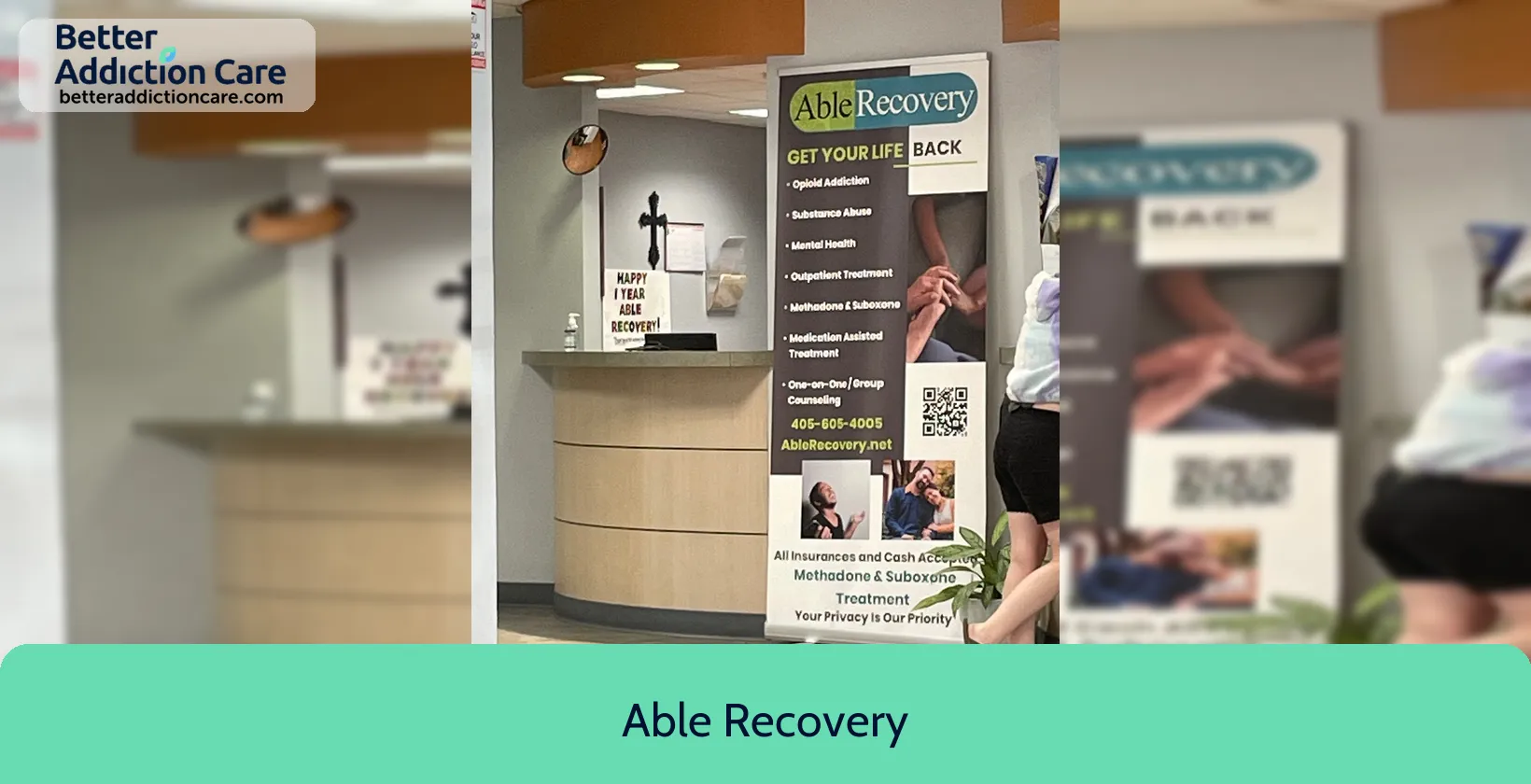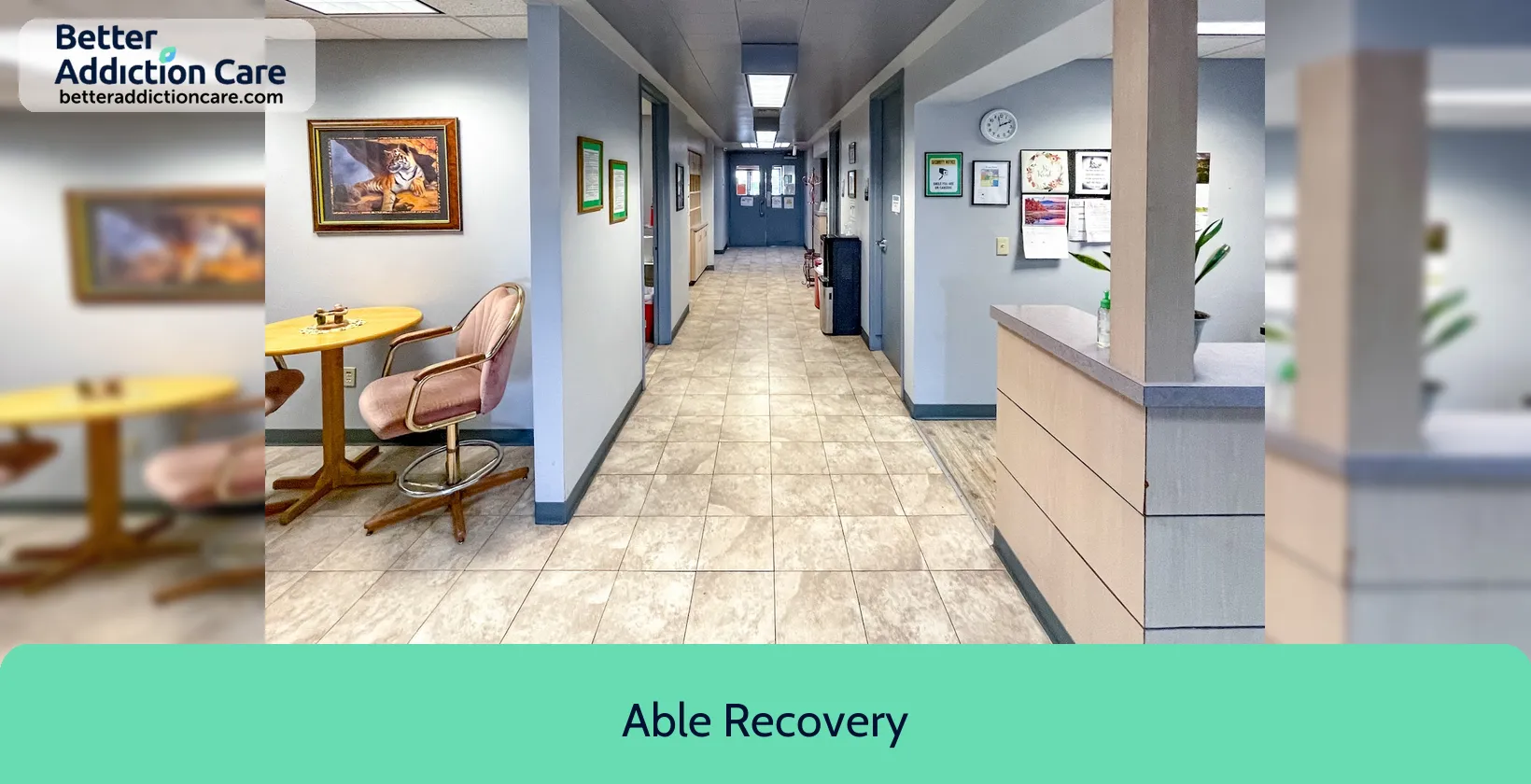Able Recovery
Overview
Able Recovery, situated in Oklahoma City, Oklahoma, focuses in providing rehabilitation services for persons suffering from substance use disorders, with a main emphasis on Methadone and Suboxone treatments. All patients can get care at the hospital, even those who don't have insurance or would rather pay cash. Able Recovery is a safe place for people who want to get better, and you don't need an appointment to walk in.
The center offers a wide range of services, such as outpatient care, individual counseling, group therapy, and a 90-day cleansing program. Medication-assisted treatment (MAT), mental health evaluations, and regular urine drug tests are all types of care that are offered at Able Recovery. The facility is dedicated to patient-centered care and makes sure that there is a grievance process available to address any concerns and protect patients' rights as they recover.
Able Recovery at a Glance
Payment Options
- Cash or self-payment
- Medicaid
- Medicare
- Private health insurance
- Daily
Assessments
- Screening for tobacco use
- Comprehensive substance use assessment
- Outreach to persons in the community
- Screening for mental disorders
- Screening for substance use
Age Groups
- Seniors or older adults
- Young adults
- Adults
- Seniors
Ancillary Services
- Case management service
- Integrated primary care services
- Domestic violence services, including family or partner
- Early intervention for HIV
- Mental health services
Highlights About Able Recovery
7.40/10
With an overall rating of 7.40/10, this facility has following balanced range of services. Alcohol Rehabilitation: 8.00/10, Drug Rehab and Detox: 8.15/10, Insurance and Payments: 6.00/10, Treatment Options: 7.46/10.-
Drug Rehab and Detox 8.15
-
Alcohol Rehabilitation 8.00
-
Treatment Options 7.46
-
Insurance and Payments 6.00
Accreditations
CARF:
CARF accreditation is a prestigious recognition granted to rehabilitation and human service organizations. It signifies that an organization meets high-quality standards, having undergone a rigorous evaluation process. CARF accreditation boosts an organization's credibility and ensures top-notch care for individuals with disabilities, injuries, or healthcare needs.
SAMHSA certification for opioid treatment program (OTP):
SAMHSA's Opioid Treatment Programs (OTPs) accreditation is a rigorous recognition process that signifies an OTP's commitment to providing high-quality care for individuals dealing with opioid use disorders. It assures patients, families, and the community that the program adheres to evidence-based practices, employs qualified staff, and maintains a safe treatment environment. This accreditation is a symbol of quality and accountability, offering confidence in the program's ability to support individuals on their path to recovery from opioid addiction.
State mental health department:
State mental health department accreditation refers to the process of evaluating and certifying the quality and standards of a state's mental health department, ensuring that it provides high-quality services and meets specific criteria for mental health care. The accreditation process is performed by a third-party organization and helps to improve the overall care and treatment of individuals with mental health conditions.
Treatment At Able Recovery
Treatment Conditions
- Mental health treatment
- Substance use treatment
- Co-occurring Disorders
Care Levels
- Outpatient
- Outpatient methadone/buprenorphine or naltrexone treatment
- Regular outpatient treatment
- Aftercare
Treatment Modalities
- Cognitive behavioral therapy
- Telemedicine/telehealth therapy
- Substance use disorder counseling
- Trauma-related counseling
- Smoking/vaping/tobacco cessation counseling
Ancillary Services
Languages
- English
Additional Services
- Pharmacotherapies administered during treatment
- Housing services
- Breathalyzer or blood alcohol testing
Special Programs
- Clients with co-occurring mental and substance use disorders
- Veterans
- Members of military families
- Pregnant/postpartum women
- Clients who have experienced trauma
Get Help Now
Common Questions About Able Recovery
Contact Information
Other Facilities in Oklahoma City
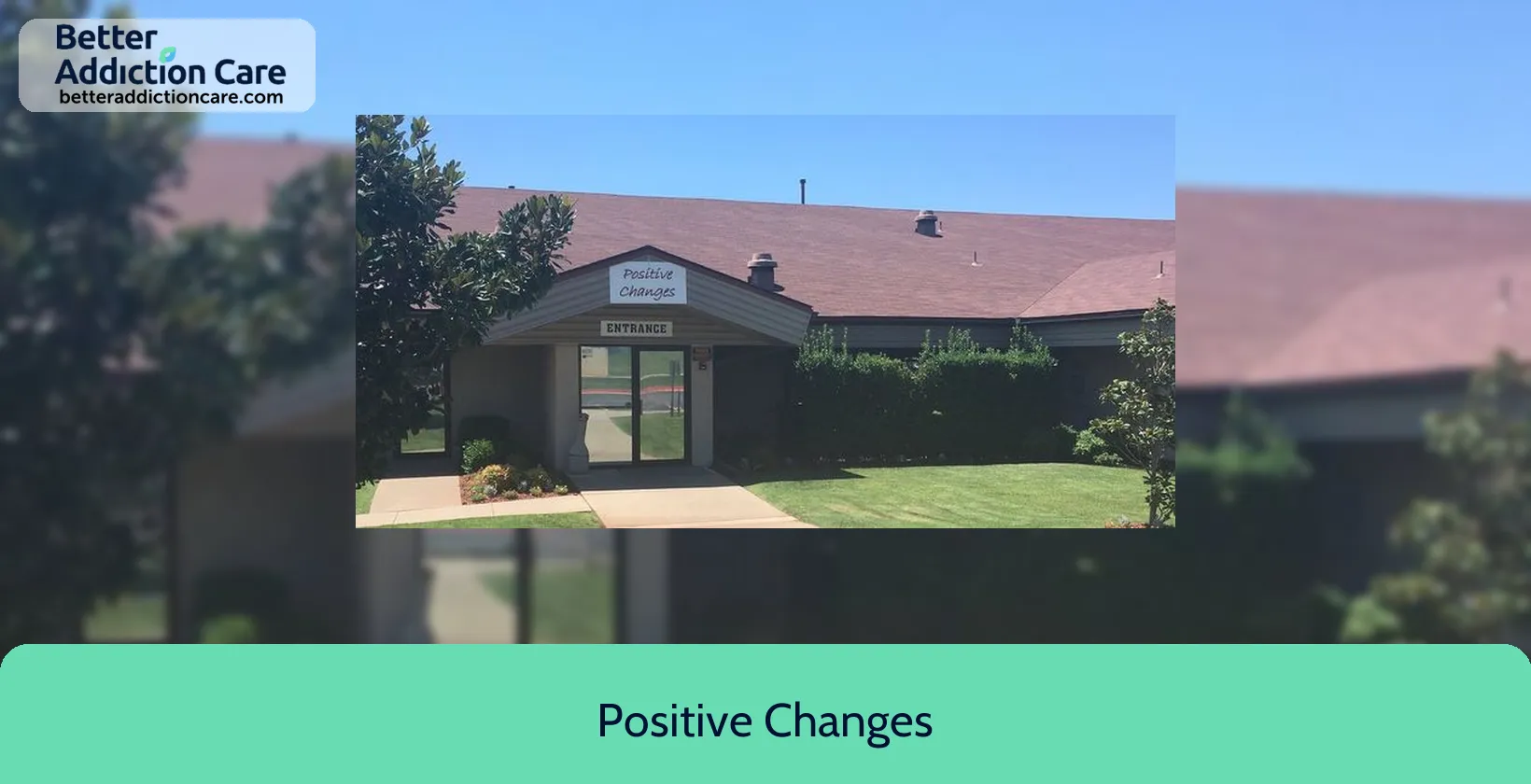
6.65
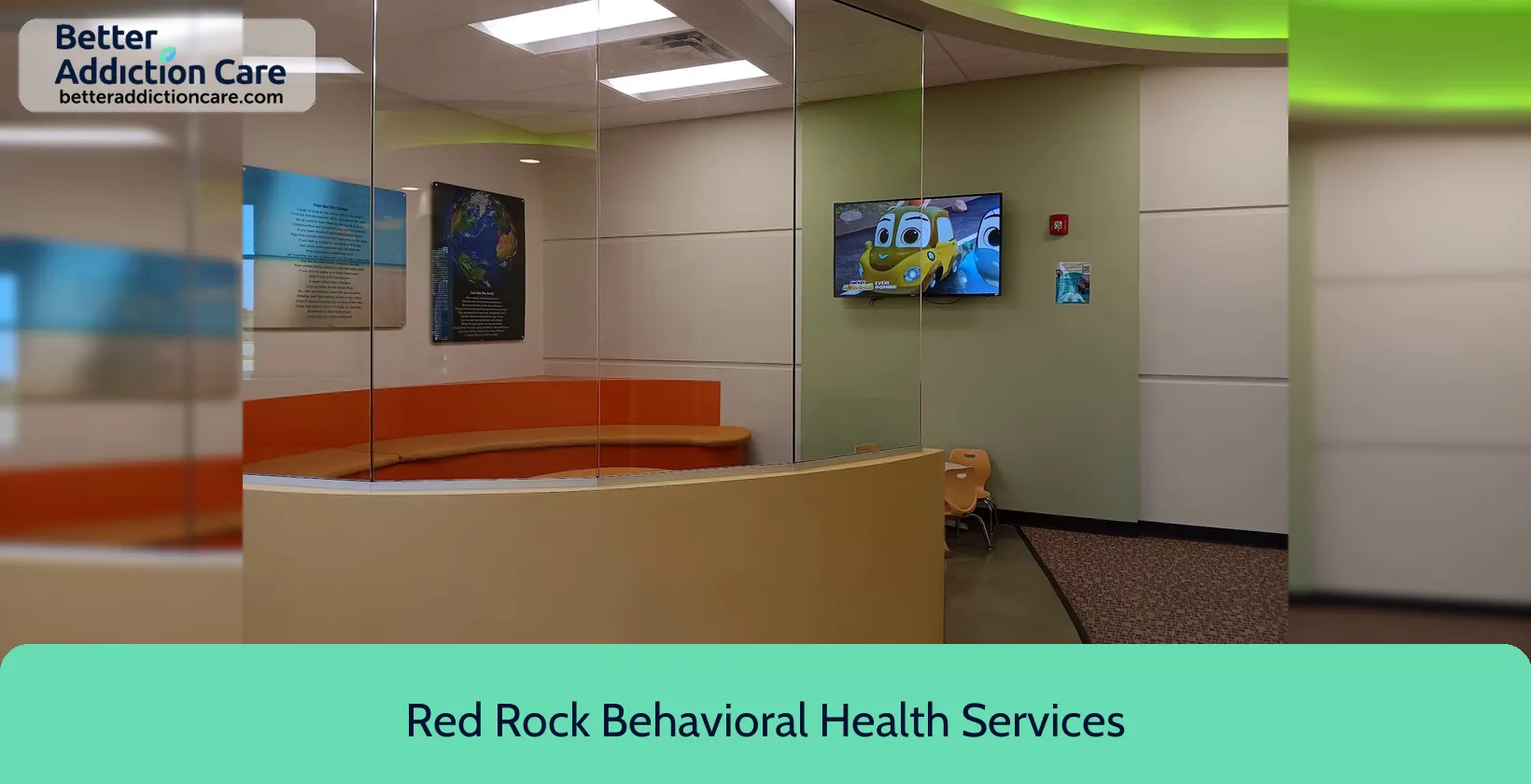
6.59
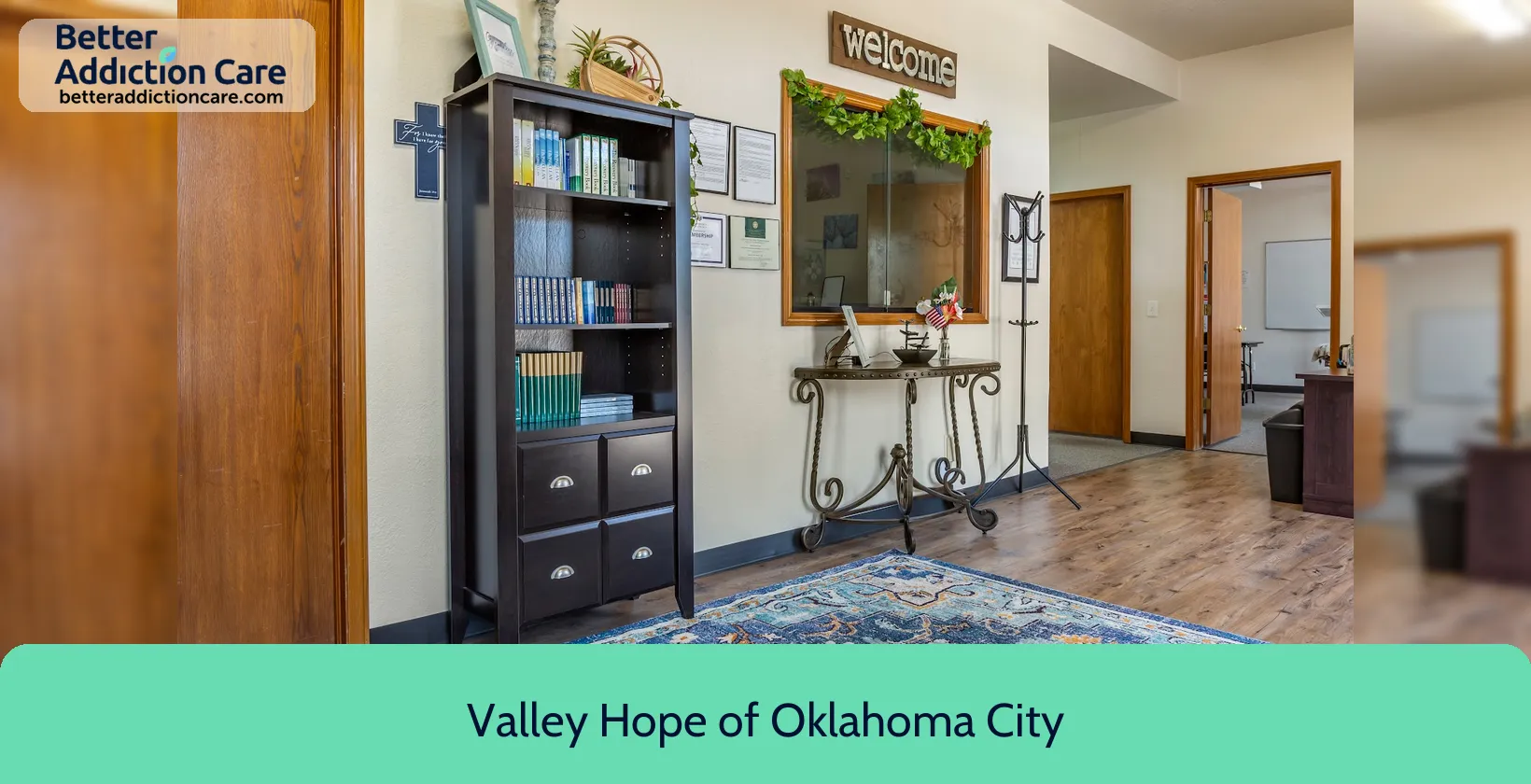
6.86
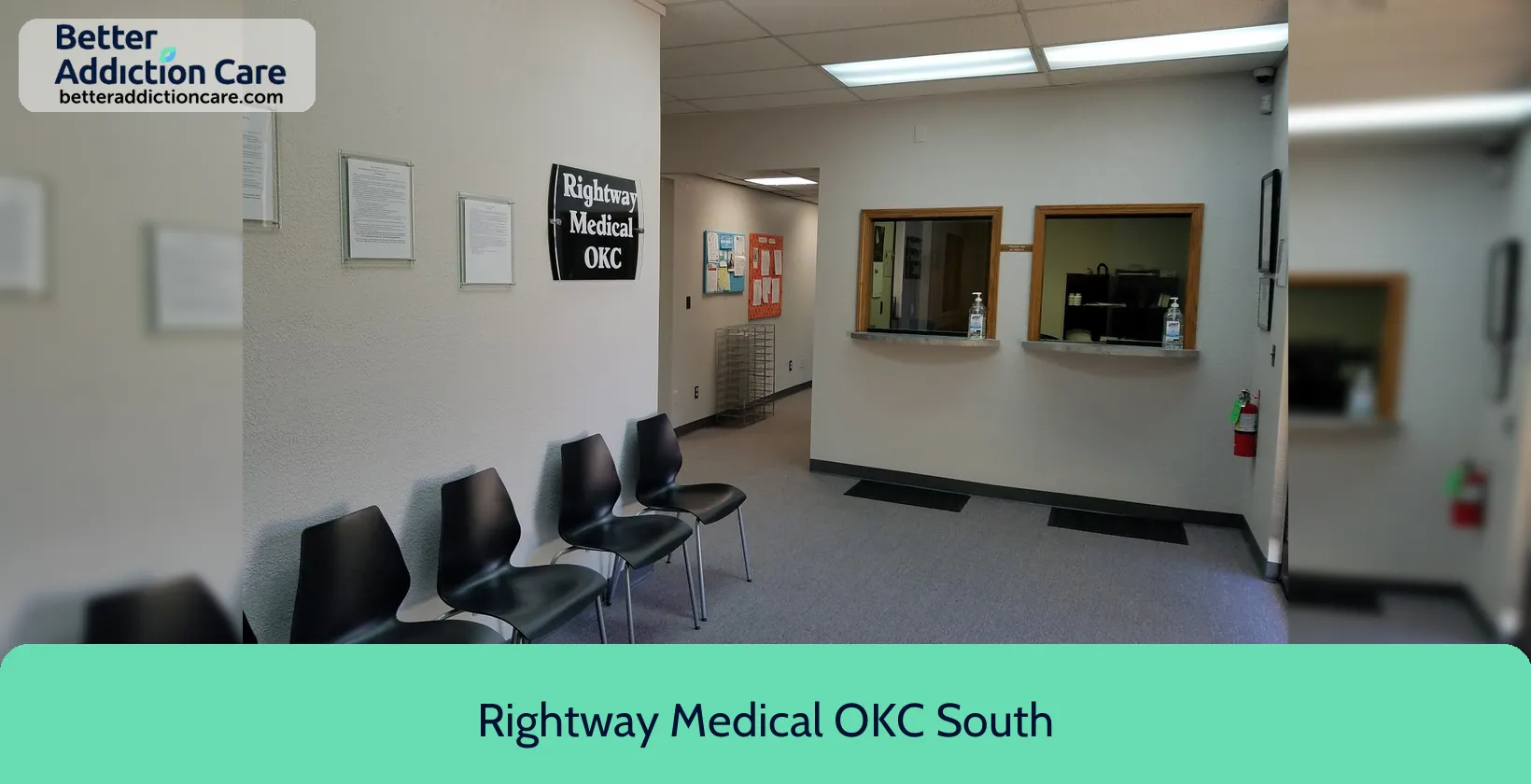
7.36
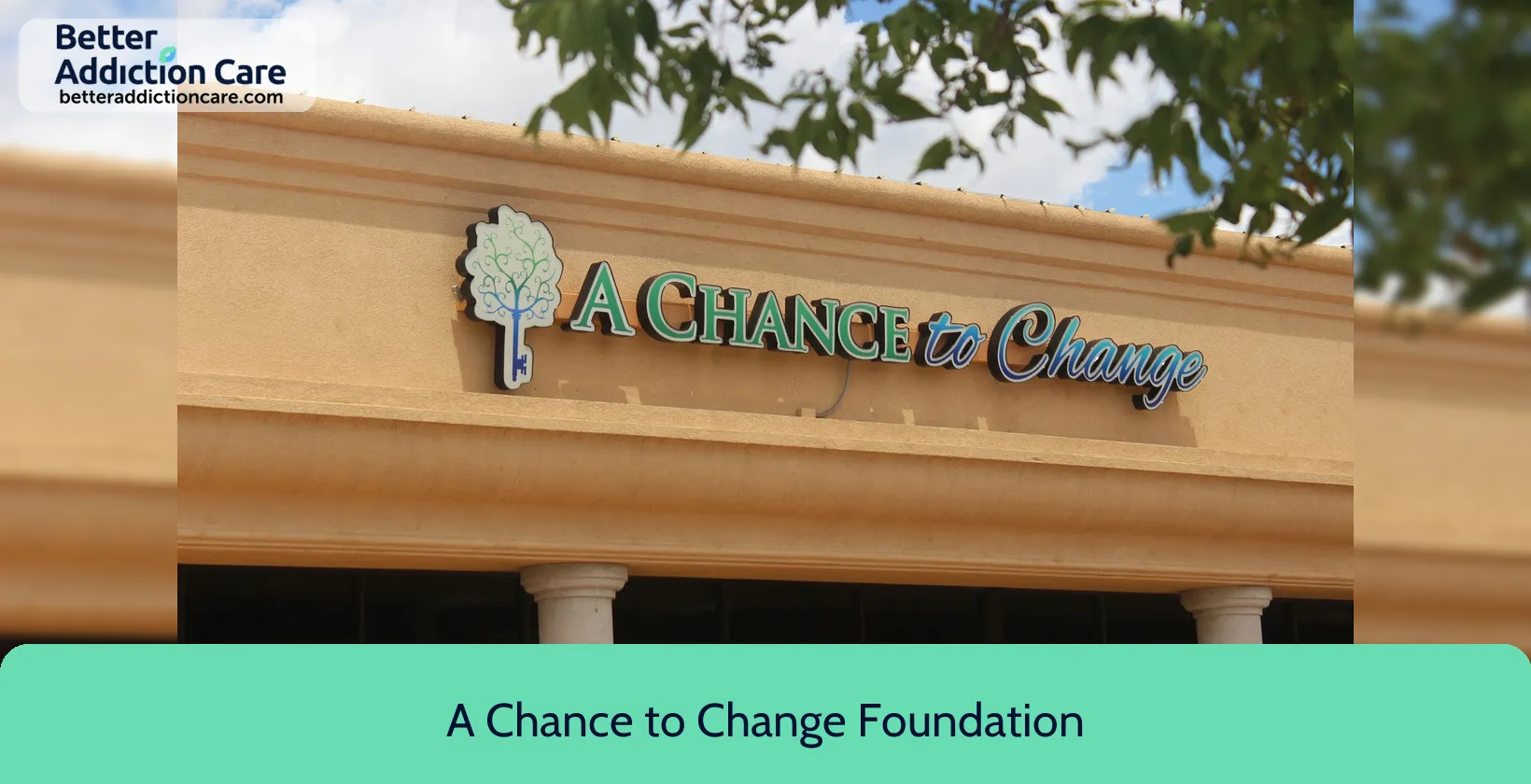
7.01
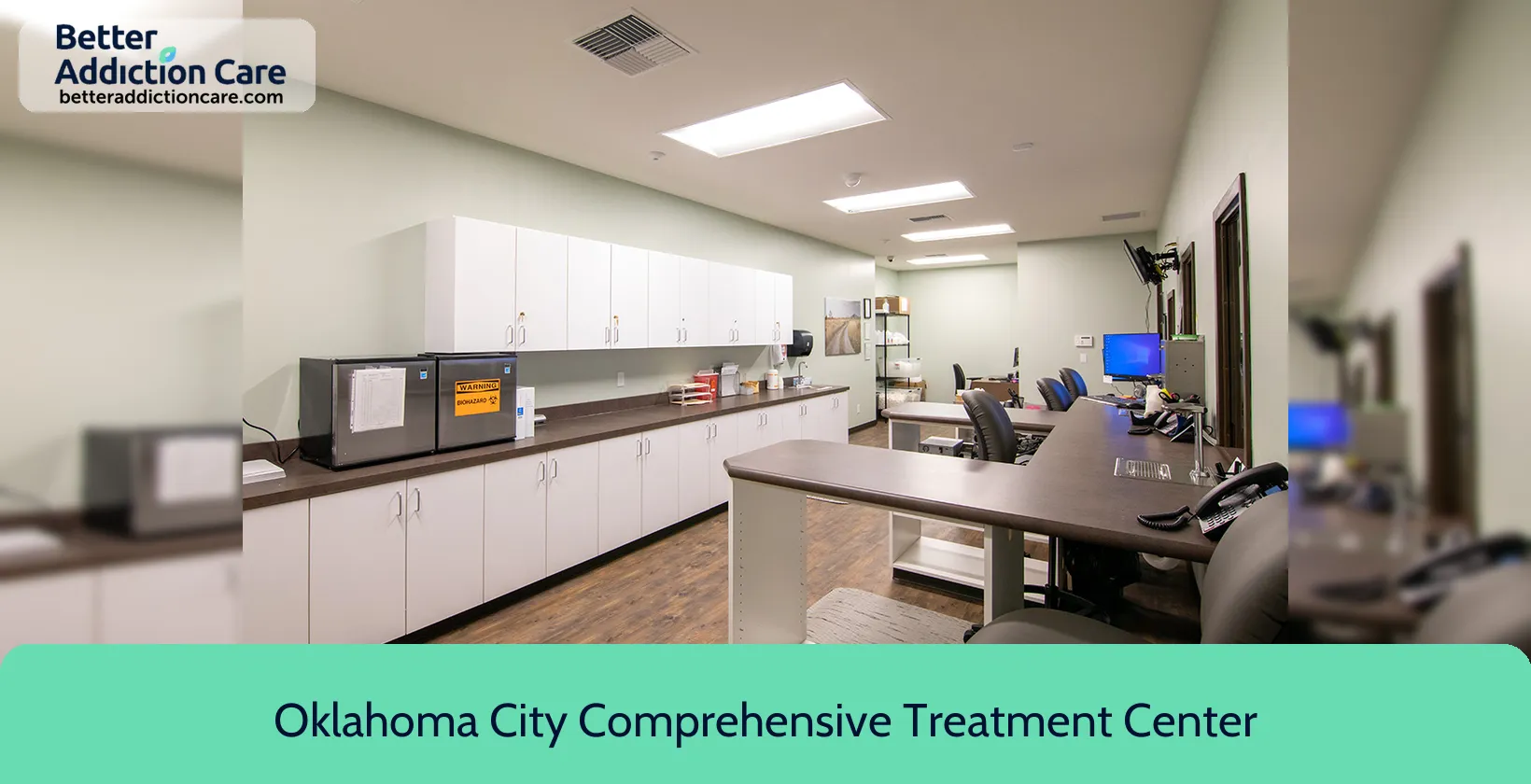
7.39
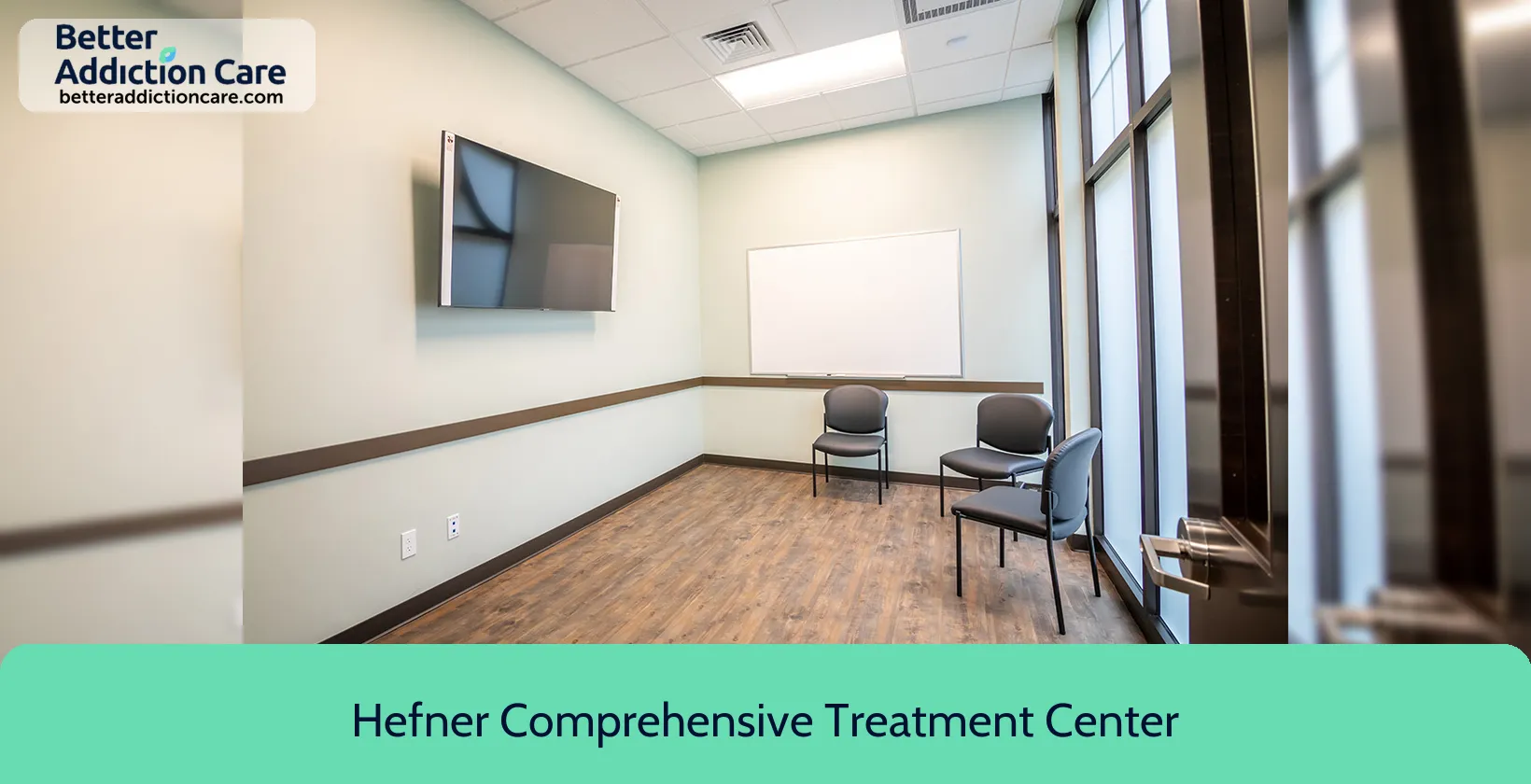
7.22

6.99
DISCLAIMER: The facility name, logo and brand are the property and registered trademarks of Red Rock Behavioral Health Services, and are being used for identification and informational purposes only. Use of these names, logos and brands shall not imply endorsement. BetterAddictionCare.com is not affiliated with or sponsored by Red Rock Behavioral Health Services.
